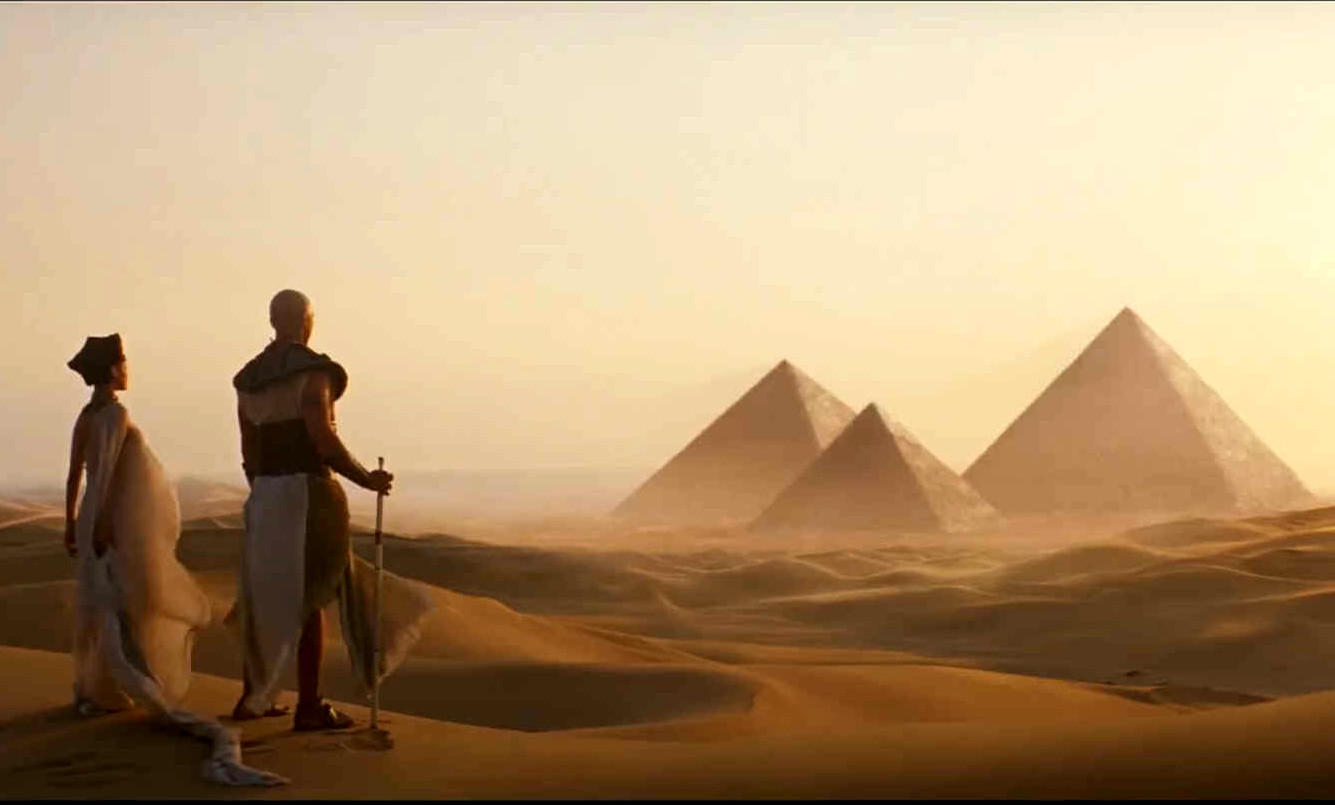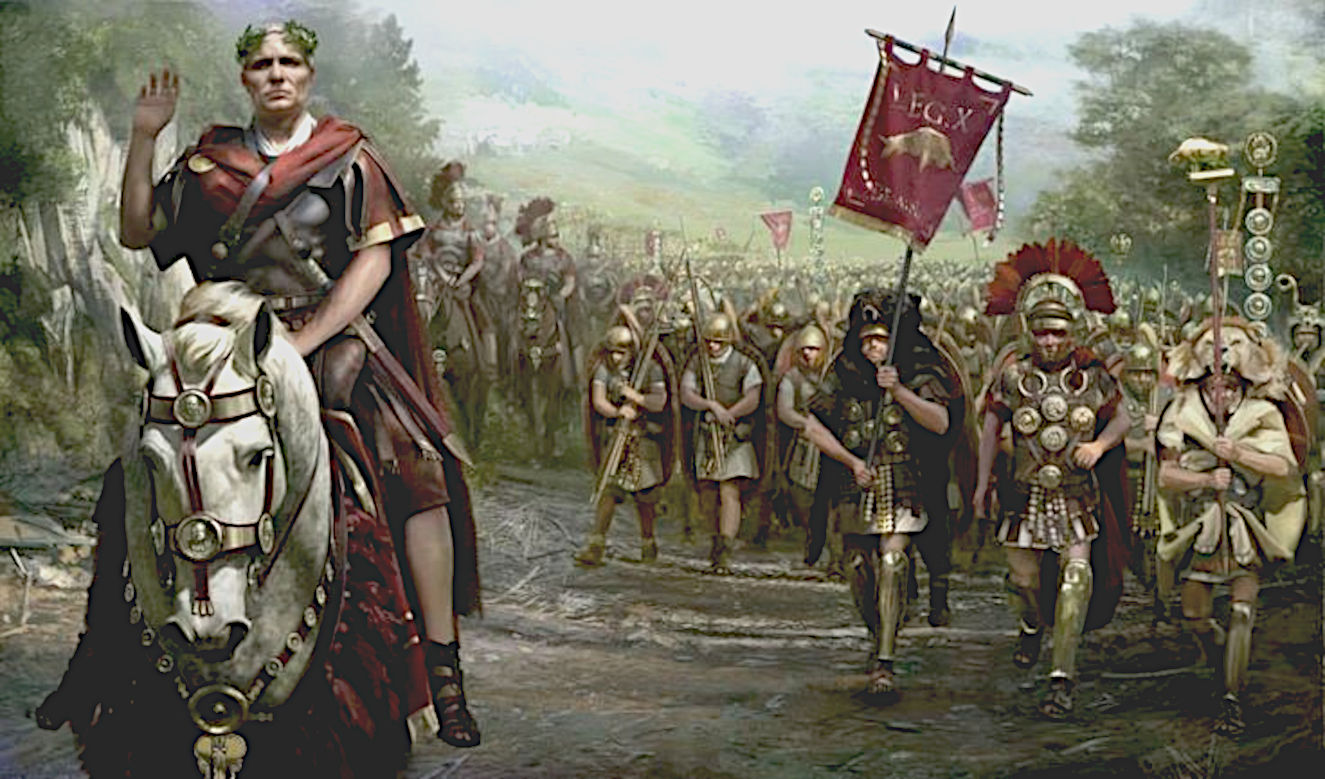
The
Battle of Pharsalus, Julius Caesar's Roman civil war, 48 BC
The Battle of Pharsalus, 48 BC, was the decisive engagement in the Roman civil war (49
- 45 BC) between Julius Caesar and Pompey the
Great fought on the 9th August. After failing to subdue his enemies at Dyrrhachium (now Dürres, Albania), Caesar clashed with Pompey somewhere near Pharsalus (now Fársala, Greece). Although Caesar was greatly outnumbered, his veteran legions successfully routed Pompey’s diverse but undisciplined levies. Pompey’s flight to
Egypt and subsequent murder handed the ultimate victory to Caesar.
PRELUDE
Following the start of the Civil War, Caesar had captured Rome, forced Pompey and his allies to withdraw from Italy, and defeated Pompey's legates in Spain. In the campaign season for 48 BC, Caesar crossed the
Adriatic and advanced on Dyrrachium. There, he besieged it, but was defeated.
Caesar then withdrew east into Thessaly, partly to relieve one of his legates from attack by Metellus Scipio's forces arriving from Syria. He besieged Gomphi after it resisted him. Pompey pursued, seeking to spare Italy from invasion by concluding the war on Greek soil, to prevent Caesar from defeating Metellus Scipio's forces arriving from Syria, and under pressure from his overconfident allies who accused him of prolonging the war to extend his command
THE BATTLE
There was significant distance between the two armies, according to Caesar. Pompey ordered his men not to charge, but to wait until Caesar's legions came into close quarters; Pompey's adviser Gaius Triarius believed that Caesar's infantry would be fatigued and fall into disorder if they were forced to cover twice the expected distance of a battle march. Also, stationary troops were expected to be able to defend better against pila throws. Seeing that Pompey's army was not advancing, Caesar's infantry under Mark Antony and Gnaeus Domitius Calvinus started the advance. As Caesar's men neared throwing distance, without orders, they stopped to rest and regroup before continuing the charge; Pompey's right and centre line held as the two armies collided.
As Pompey's infantry fought, Labienus ordered the Pompeian cavalry on his left flank to attack Caesar's cavalry; as expected they successfully pushed back Caesar's cavalry. Caesar then revealed his hidden fourth line of infantry and surprised Pompey's cavalry charge; Caesar's men were ordered to leap up and use their pila to thrust at Pompey's cavalry instead of throwing them. Pompey's cavalry panicked and suffered hundreds of casualties, as Caesar's cavalry came about and charged after them. After failing to reform, the rest of Pompey's cavalry retreated to the hills, leaving the left wing of his legions exposed to the hidden troops as Caesar's cavalry wheeled around their flank. Caesar then ordered in his third line, containing his most battle-hardened veterans, to attack. This broke Pompey's left wing troops, who fled the battlefield.
After routing Pompey's cavalry, Caesar threw in his last line of reserves — a move which at this point meant that the battle was more or less
decided. Pompey lost the will to fight as he watched both cavalry and legions under his command break formation and flee from battle, and he retreated to his camp, leaving the rest of his troops at the centre and right flank to their own devices. He ordered the garrisoned auxiliaries to defend the camp as he gathered his family, loaded up gold, and threw off his general's cloak to make a quick escape. As the rest of Pompey's army were left confused, Caesar urged his men to end the day by routing the rest of Pompey's troops and capturing the Pompeian camp. They complied with his wishes; after finishing off the remains of Pompey's men, they furiously attacked the camp walls. The Thracians and the other auxiliaries who were left in the Pompeian camp, in total seven cohorts, defended bravely, but were not able to fend off the assault.
Caesar had won his greatest victory, claiming to have only lost about 200 soldiers and 30 centurions and assigning the Optimate losses to be 60,000 men . These numbers seem suspiciously exaggerated with Appian suggesting the Caesarean losses to be as many as 1,200 men and the Pompeian losses to be 6,000. In his history of the war, Caesar would praise his own men's discipline and experience, and remembered each of his centurions by name. He also questioned Pompey's decision not to charge.
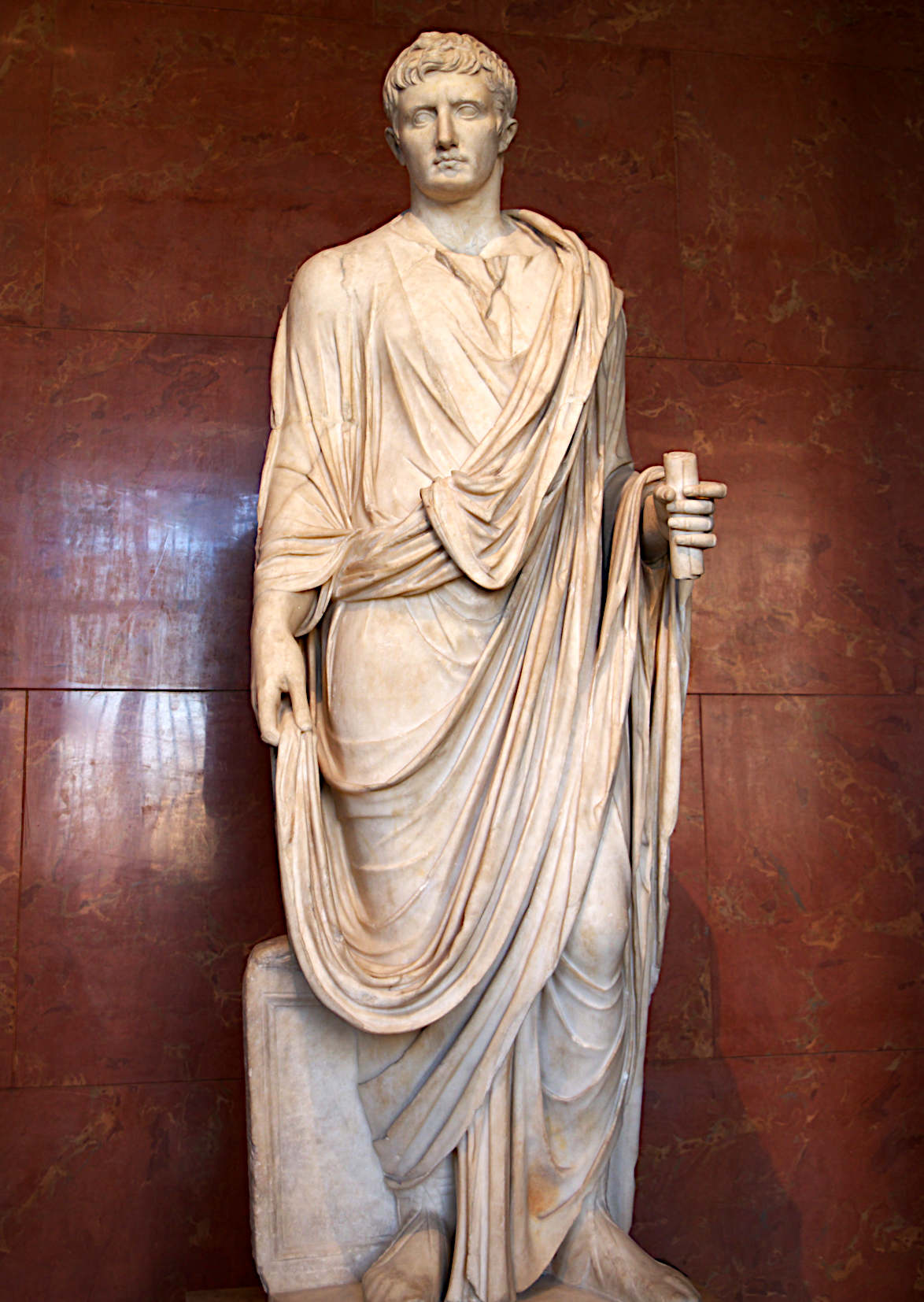
NAME OF THE BATTLE
Although it is often called the Battle of Pharsalus by modern historians, this name was rarely used in the ancient sources. Caesar merely calls it the proelium in Thessaliā ("battle in Thessalia"); Marcus Tullius Cicero and Hirtius call it the Pharsālicum proelium ("Pharsalic battle") or pugna Pharsālia ("Pharsalian battle"), and similar expressions are also used in other authors. But Hirtius (if he is the author of the de Bello Alexandrino) also refers to the battle as having taken place at Palaepharsalus, and this name also occurs in Strabo, Frontinus, Eutropius, and Orosius. Lucan in his poem about the Civil War regularly uses the name Pharsālia, and this term is also used by the epitomiser of Livy and by Tacitus. The only ancient sources to refer to the battle as being at Pharsalus are a certain calendar known as the Fasti Amiternini and the Greek authors Plutarch, Appian, and Polyaenus. It has therefore been argued by some scholars that "Pharsalia" would be a more accurate name for the battle than
Pharsalus.
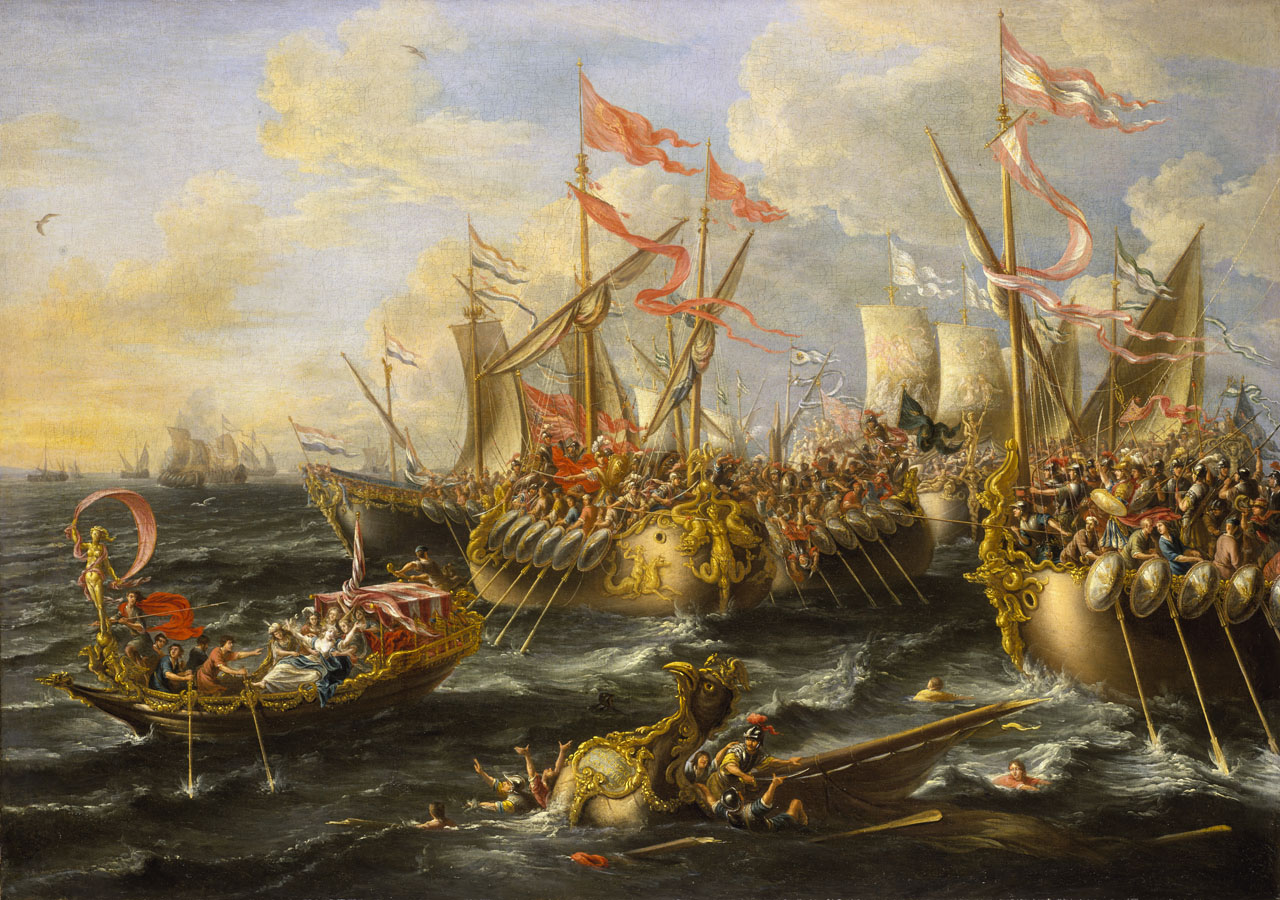
The
Battle of Actium 31 BC, Julius Caesar triumphs against Mark
Antony
AFTERMATH
Pompey, despairing of the defeat, fled with his advisors overseas to Mytilene and thence to Cilicia where he held a council of war; at the same time, Cato and supporters at Dyrrachium attempted first to hand over command to Marcus Tullius Cicero, who refused, deciding instead to return to
Italy. They then regrouped at Corcyra and went thence to Libya. Others, including Marcus Junius Brutus sought Caesar's pardon, travelling over marshlands to Larissa where he was then welcomed graciously by Caesar in his camp. Pompey's council of war decided to flee to Egypt, which had in the previous year supplied him with military aid.
In the aftermath of the battle, Caesar captured Pompey's camp and burned Pompey's correspondence. He then announced that he would forgive all who asked for mercy. Pompeian naval forces in the Adriatic and Italy mostly withdrew or surrendered.
Hearing of Pompey's flight to Egypt, Caesar remained in hot pursuit, first landing in Asia and reaching
Alexandria on 2 October 48 BC, where he learnt of Pompey's murder and then was embroiled in a dynastic dispute between Ptolemy XIII and Cleopatra.
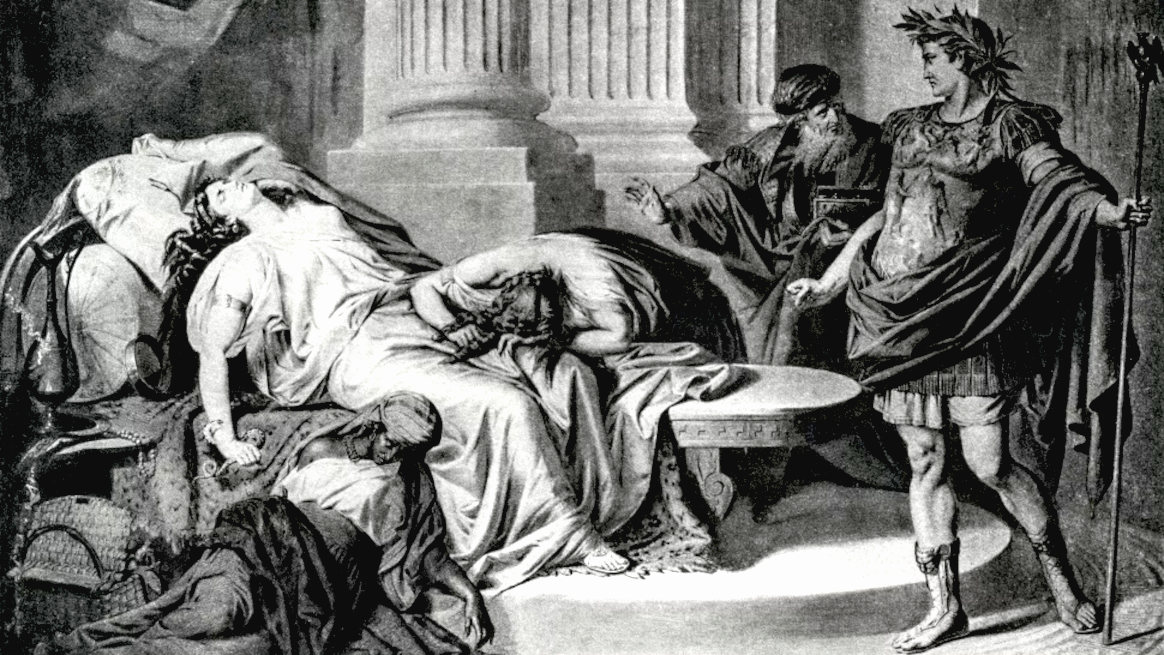
Cleopatra
takes her own life with a poison asp, Octavian unable to prevent.
JULIUS
CAESAR, ANTONY & CLEOPATRA
Soon after Julius Caesar was assassinated, another power struggle began.
Cleopatra threw in with Mark Antony, pitching Egypt against Rome and
Octavian.
In early 31 BC, Antony and Cleopatra were temporarily stationed in Greece when Octavian gained a preliminary victory: the navy successfully ferried troops across the Adriatic Sea under the command of Agrippa. Agrippa cut off Antony and Cleopatra's main force from their supply routes at sea, while Octavian landed on the mainland opposite the island of Corcyra (modern Corfu) and marched south. Trapped on land and sea, deserters of Antony's army fled to Octavian's side daily while Octavian's forces were comfortable enough to make preparations.
Antony's fleet sailed through the bay of Actium on the western coast of Greece in a desperate attempt to break free of the naval blockade. It was there that Antony's fleet faced the much larger fleet of smaller, more maneuverable ships under commanders Agrippa and Gaius Sosius in the
Battle of Actium on 2 September 31 BC. Antony and his remaining forces were spared only due to a last-ditch effort by Cleopatra's fleet that had been waiting nearby.
Octavian pursued them and defeated their forces in Alexandria on 1 August 30
BC - after which Antony and Cleopatra committed
suicide. Antony fell on his own sword and was taken by his soldiers back to Alexandria where he died in Cleopatra's arms. Cleopatra died soon after, reputedly by the venomous bite of an asp or by poison.
|




